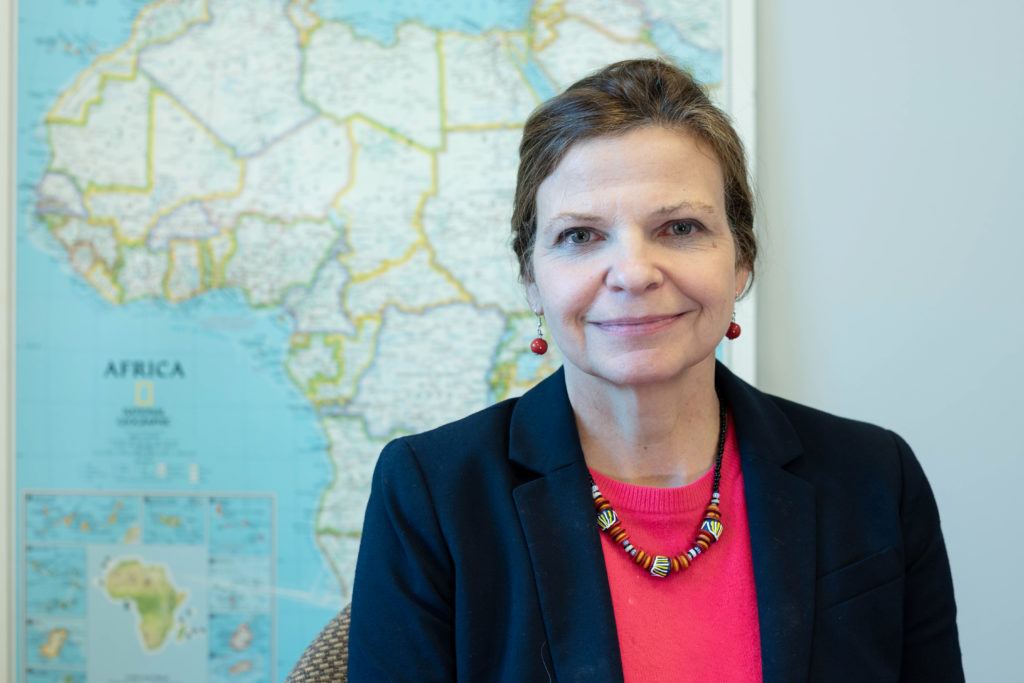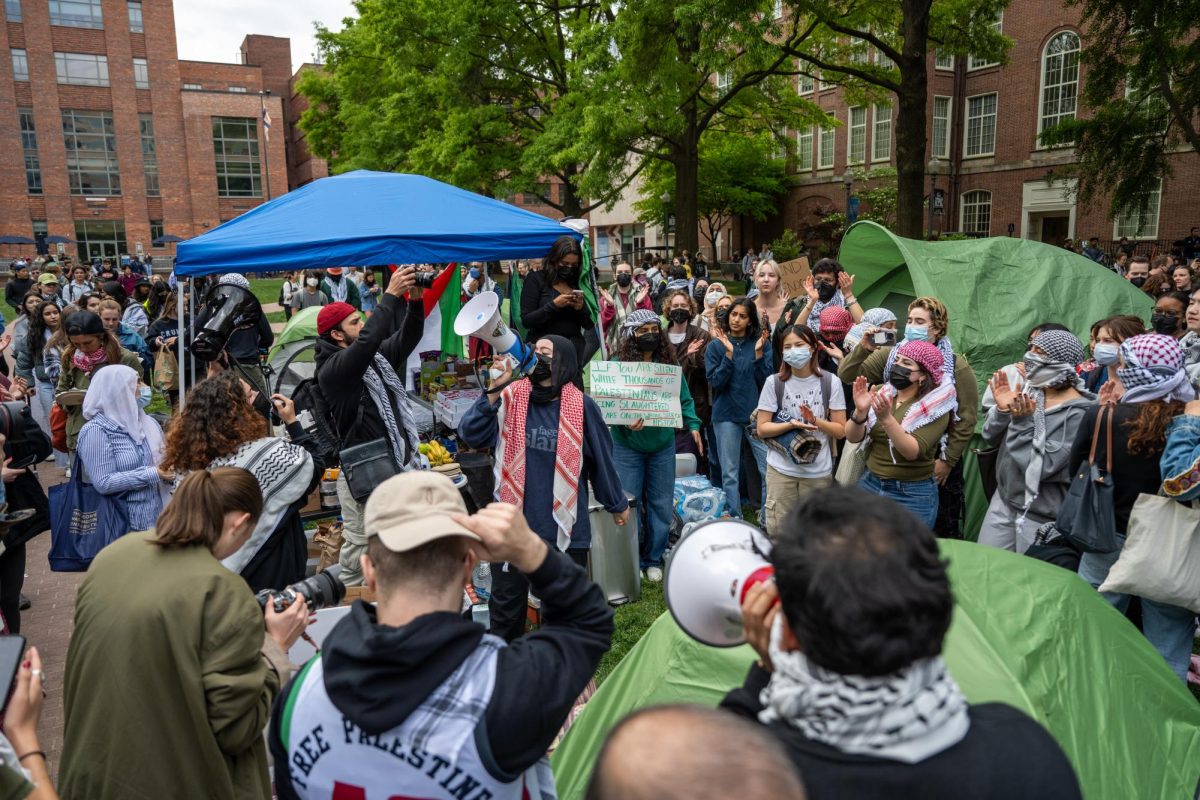As the international affairs school dean prepares to leave his post, the Institute for African Studies marks four years working on one of his goals – increasing the visibility of the second-largest continent in the school’s research and academics.
The institute, housed in the Elliott School of International Affairs, has raised its profile over the period by holding seminar events related to African studies and has become a competitor among other academic institutions for research and bringing students into the field, faculty said. Officials said the events have generated interest in and raised awareness of African studies, allowing for increased collaboration, research and courses related to the field.
Elliott School Dean Reuben Brigety founded the institute in 2016 to increase scholarship in African culture and politics, one of his main priorities since he became dean.
“We have a clear demand signal from students that they would like more Africa-focused opportunities,” he said in an email.
Brigety said members of the institute aim to engage students on African affairs and to place the continent in the mainstream of the study of international affairs, which Brigety said is “where it should be.”
Before he announced that he would step down Friday, Brigety said he hopes to establish a department of African studies that would promote “excellence in research, scholarship, teaching and learning.”
“It should be the go-to place for expertise and policy debate on African issues,” Brigety said.
Throughout its history, the institute’s members have launched an annual conference that brings together policymakers and activists working on African issues, collaborated with academics with backgrounds in African studies throughout the District and established a seminar series to help students and faculty learn more about African politics and culture.
Jennifer Cooke, the director of the institute, said the goal for the institute’s seminar series is to foster new research on Africa and give students the opportunities to connect with scholars, policymakers and “African thought leaders, activists and practitioners.”
She said the institute has hosted more than 40 events in the past year and brought in a variety of speakers from the region like Tanzanian opposition leader Tundu Lissu, Sudanese protest leader Mohamed Nagy Alassam and Mcebisi Jonas, the chair of Africa’s largest telecommunications company.
“These kinds of interactions, to my mind, are what get people interested and energized about African issues and hopefully encourage them to learn more,” Cooke said in an email.
Cooke said institute staff push students to engage more with African studies because the field traditionally doesn’t receive much attention in the American public education system and the continent is generally portrayed by media in a negative light. She said education from experts in the field is a way to overturn negative stereotypes of the continent.
“Media narratives have tended to emphasize images of conflict, poverty and disease,” Cooke said. “And as a result, the continent has too often been seen as somehow on the margins of global affairs. That perception is thankfully changing.”
Cooke said students may find African studies courses – which feature African political, economic and security issues – helpful to understand global trends like trade, environment and security challenges.
She said the current number of undergraduate students enrolled in African studies courses has increased by more than 81 percent – from 179 to 324 students – since the institute opened in 2016.
Cooke said the trend is similar among graduate students – the number of graduate students currently enrolled in African-related courses has grown by 62 students since 2017.
Elliott School officials have hired six new adjunct faculty members and created one new graduate course on Africa this academic year, Cooke said. She said officials will also add two additional undergraduate courses – West African Film and African Literature and Politics – next fall.
“Ultimately, we want GW to be the place you come if you want a deeper understanding of contemporary Africa, its place in global affairs and the mega-trends that are shaping the continent’s future,” Cooke said.
Officials hope to explore different angles of the field by fostering collaboration beyond the Elliott School – like with the history department, the School of Media and Public Affairs and the Milken Institute School of Public Health, she said.
Cooke said that while there is no department of African studies at GW, the institute and Elliott School officials are working toward creating a graduate degree program in African studies and more short-term study abroad opportunities for students to increase engagement with the field.
Daniel Whitman, a professorial lecturer in African studies, said Africa is becoming a larger player in both the global economic marketplace and the “marketplace of ideas,” adding that international affairs students should be cognizant of developments on the continent before they start their careers.
Whitman said he has worked in collaboration with the Bureau of African Affairs in the U.S. Department of State to bring speakers to GW, which will be happening in the “near future.”
“We’re all doing this in our separate ways,” Whitman said. “And you put it all together, and it’s a very positive picture.”
Whitman teaches a course called Africa: Problems and Prospects and said he is proud of the diversity of the students enrolled in the course, which includes racially and ethnically diverse students and students with differing levels of knowledge about Africa.
“It’s always a plus if you have an ethnic group studying itself – that’s fine,” Whitman said. “But if you have the interest of others, I think it’s fantastic.”







